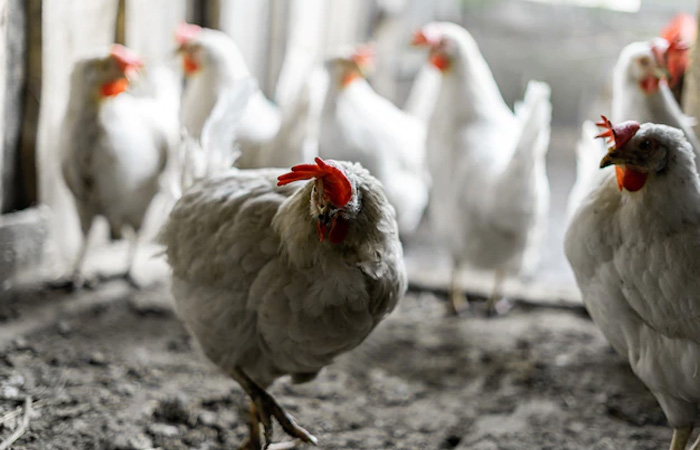Manitoba Agriculture is advising that the Canadian Food Inspection Agency (CFIA) has confirmed a case of avian influenza in a commercial poultry flock in Manitoba.
This confirmation marks the first case of highly pathogenic avian influenza (HPAI) H5N1 in a commercial flock in Manitoba. Further information is available at canada.ca.
HPAI cases had previously been confirmed in many jurisdictions in Canada and the United States, including North Dakota and Minnesota, along the route for spring migratory birds returning to Manitoba.
The risk of avian influenza to human health is low. There are no known cases of transmission of this strain of the virus from birds to humans in North America.
This strain of avian influenza does not pose a food safety risk. Manitoba poultry and eggs are safe to eat when proper handling and cooking take place.
All Manitobans who keep poultry on their properties in any amount are required to complete an application to Manitoba Agriculture’s Premises Identification program. This will allow for rapid contact in the event HPAI is detected nearby. More information is available at gov.mb.ca.
Small flock owners are highly advised to take extra precautions. Small flocks are considered at high risk for HPAI infection as they often have access to outdoor pens or free range. This means there is a high probability of contact with wild birds that may be contaminated with HPAI.
Precautions for small flock owners include:
- confining birds indoors during this high-risk period of wild bird migration;
- avoiding shows or trading birds while the risk of HPAI is high;
- contacting a veterinarian immediately if an increase in sudden death or respiratory signs is seen in a flock; and
- using a quarantine period of 21 days before integrating new birds to the flock.
Manitoba’s poultry farmers are strongly urged to follow strict biosecurity protocols including precautions with farm visitors and service companies. The Manitoba government continues to work with the CFIA, which is leading the disease response, as well as the poultry industry to support producers and small flock owners and strengthen the high levels of biosecurity already implemented to reduce further spread of the disease. Co-ordination is underway with Manitoba’s poultry organizations and key sector stakeholders, and regular updates are being provided.
Producers are advised to continue monitoring information provided through their sector organizations and the Office of the Chief Veterinarian. Producers and small flock owners who need help with animal health-related concerns can contact their veterinarian or the Office of the Chief Veterinarian at 204-945-7663.
Although the risk of transmission of avian influenza to humans is low, people should not touch dead birds or other wildlife with their bare hands. Protective eyewear and masks are recommended as an additional precaution. Hands should be thoroughly washed before and after with soap and water or alcohol-based hand sanitizer. If a dead bird has to be handled, gloves should be worn and the dead bird placed in a plastic bag.
Manitobans are asked to contact the TIP Line (toll-free) at 1-800-782-0076 if they find any of the following:
- clusters of six or more dead wild waterfowl (e.g., ducks, geese) or other water birds;
- any number of dead raptors or avian scavengers (e.g., ravens, crows, gulls); and
- groups of dead birds, such as more than 20 of any species.
The public’s co-operation is appreciated to help monitor this developing situation.
Additional information is available at gov.mb.ca.





